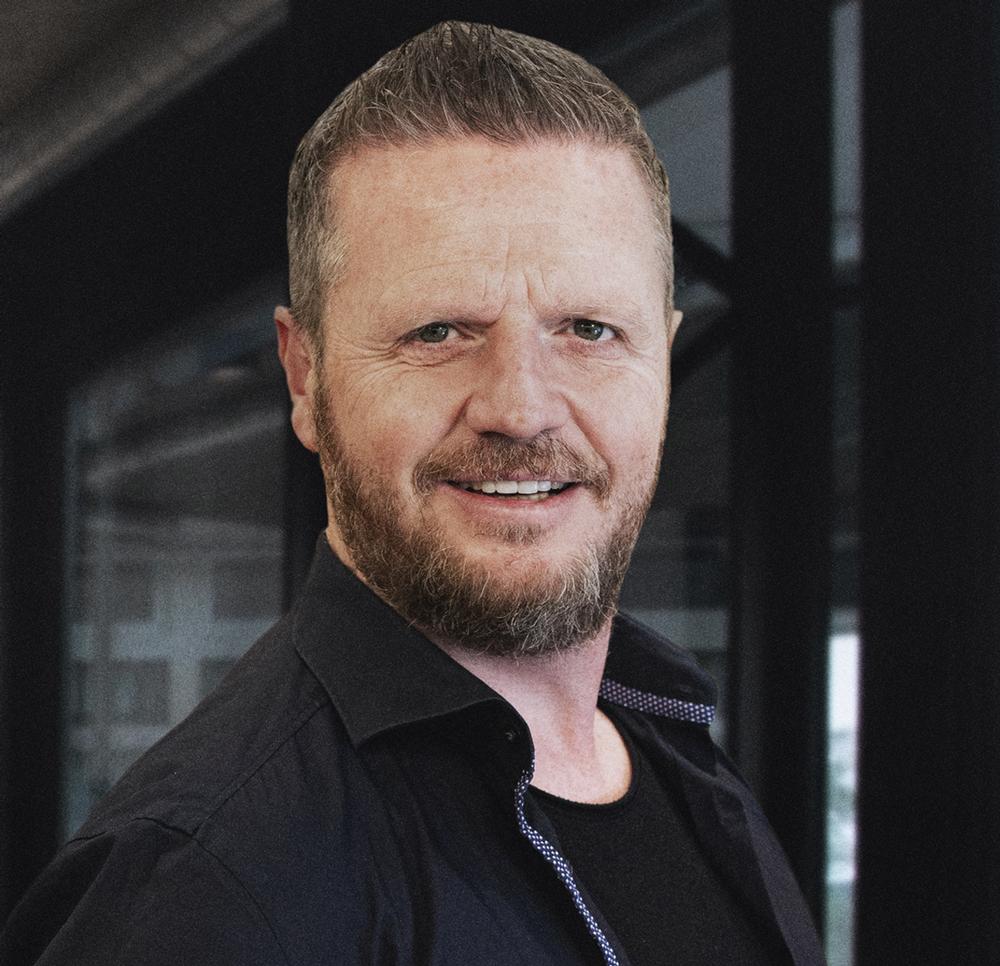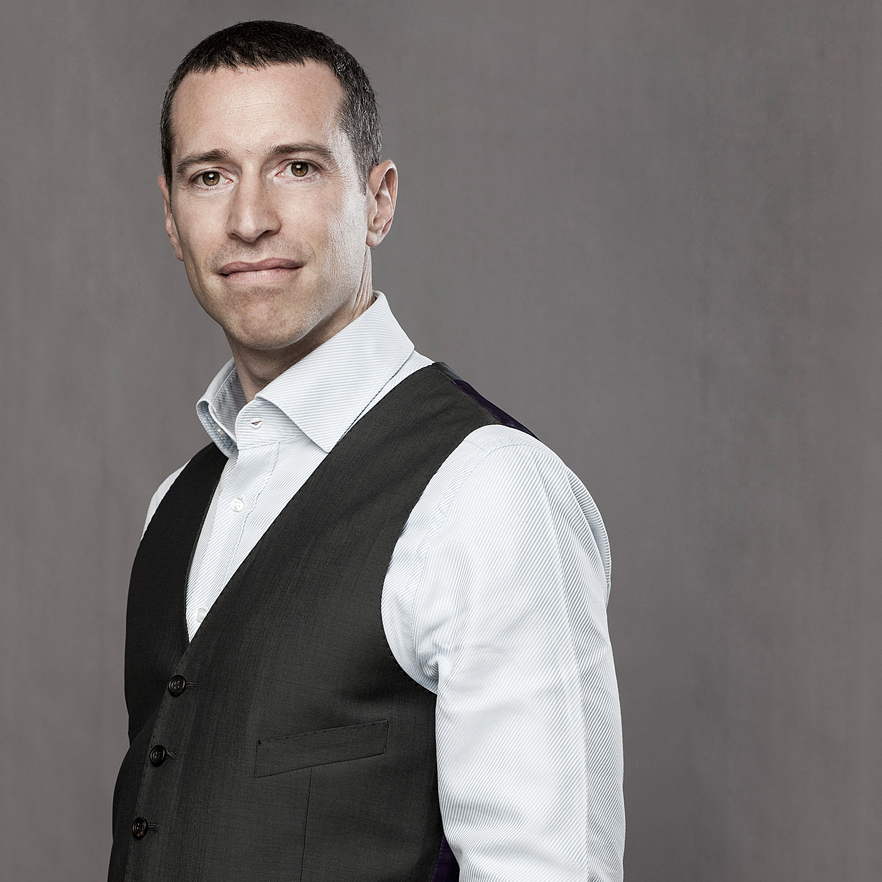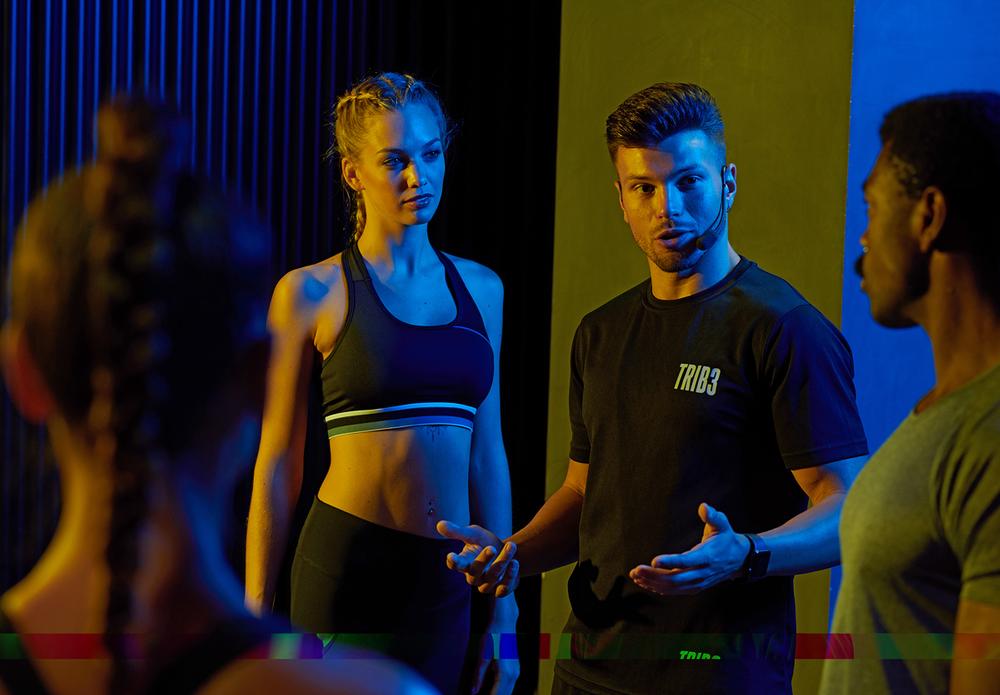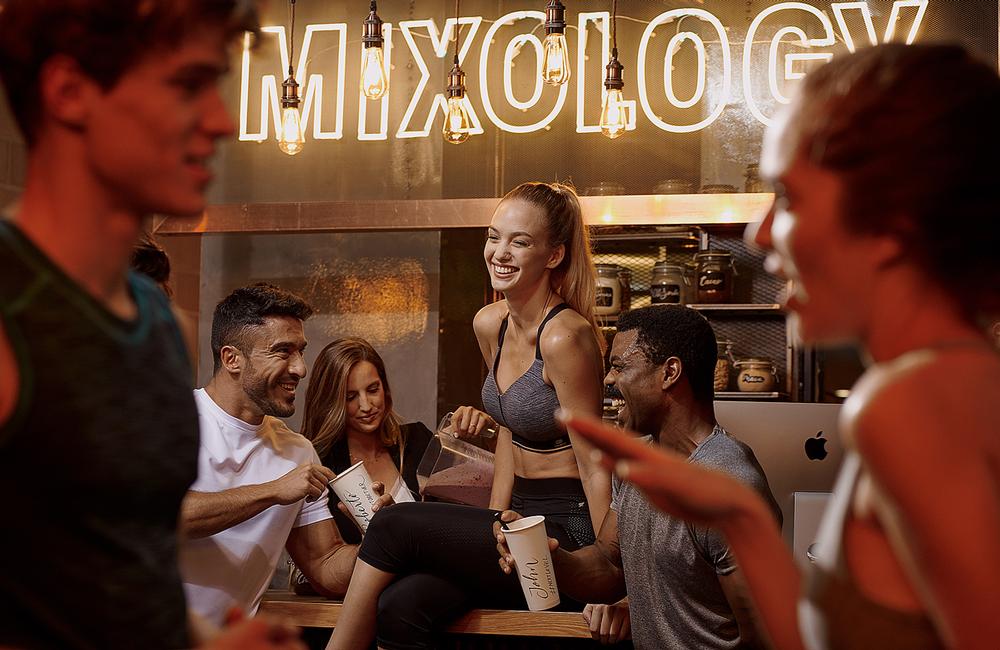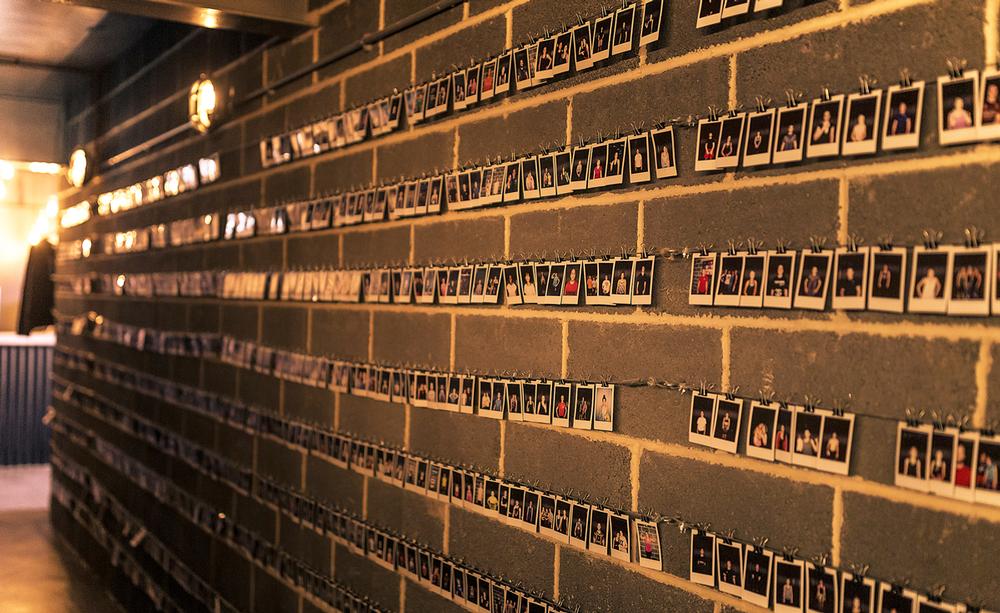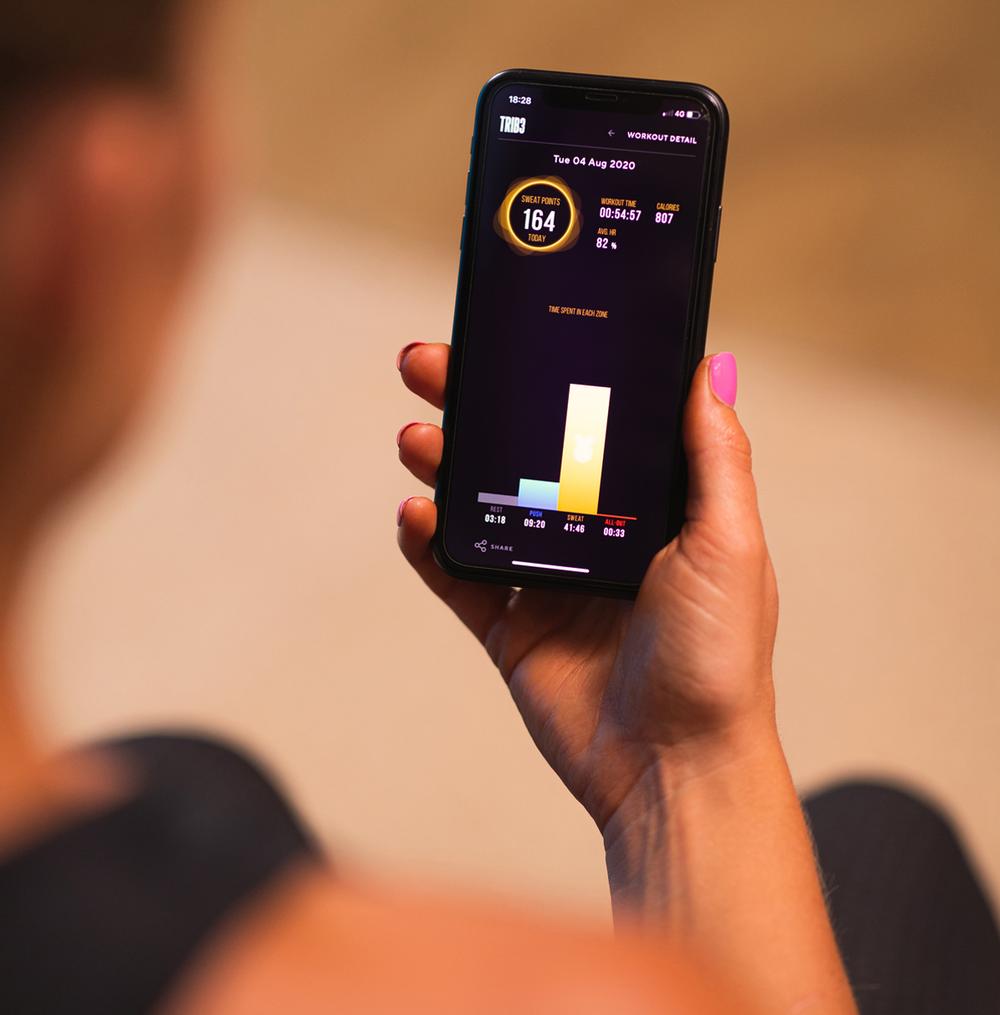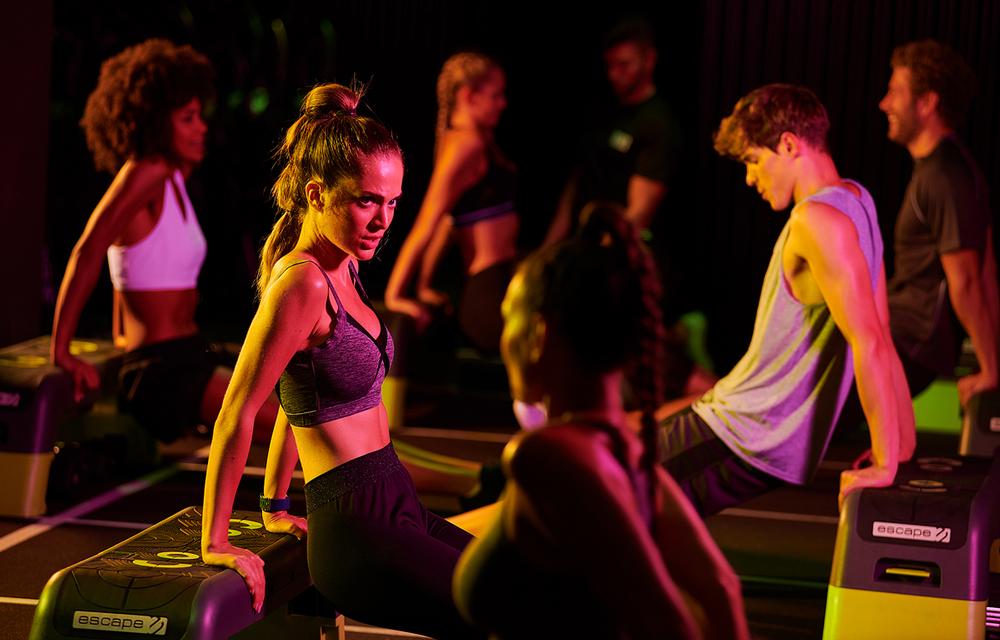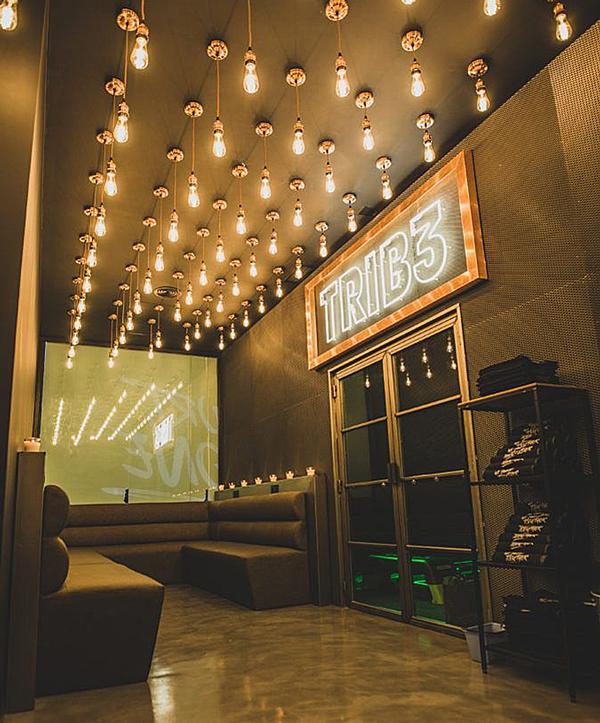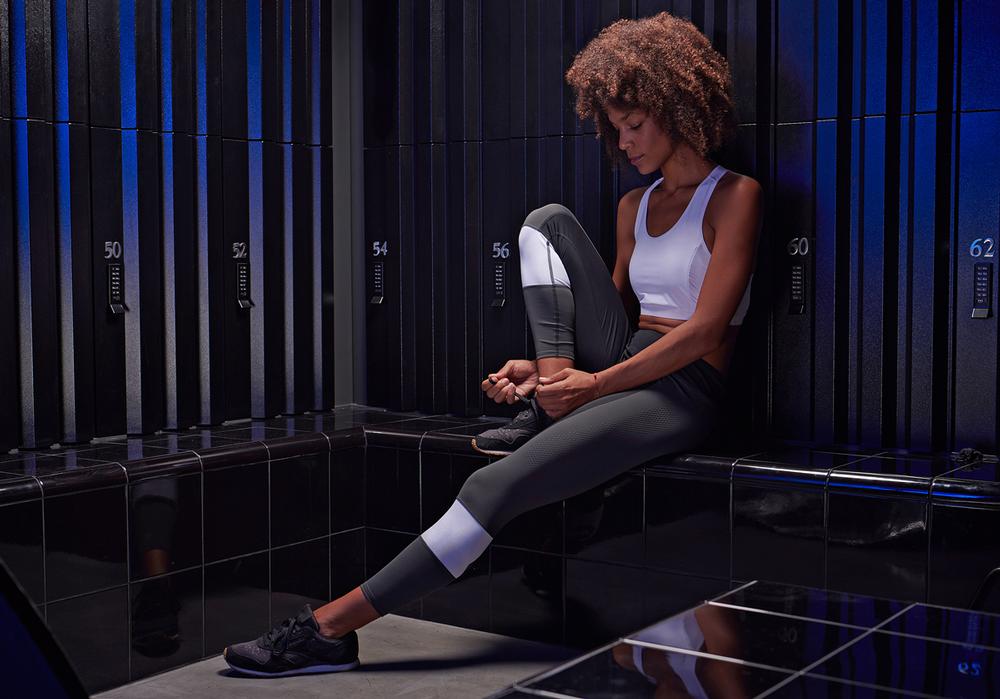Can you describe TRIB3?
I had a vision of creating a volume boutique business that wasn’t specifically aimed at London, but that we could put into cities such as Sheffield, Leeds and Manchester.
Ours is a single-studio model with three distinct zones that shape our TRIB3 workouts: Treadmill, Resistance and Intensity. It’s designed to be affordable: as an example, a 10-pack of classes will cost £100–140 depending on the location.
We developed a model based on 1,500–4,000sq ft of floorspace, where we could cater for 42–60 people at a time in the studio, and where we also had room for a Mixology protein bar, retail area and reception. Crucially, though, I wanted break-even to come at 30 per cent class occupancy; we’ve actually got it down to 27 per cent thanks to our low build and operating costs.
Of course, there are strategic areas and locations – as well as current property opportunities – that make London viable for our franchisees, even working within this 27 per cent framework; we do insist on this, as we want all our franchisees to be successful. However, we believe the bigger opportunities for growth of our model lie outside of the capital.
What makes TRIB3 special?
There are some fantastic boutiques out there, but what’s great about TRIB3 – aside from our programme and our industrial luxe feel – is the fact there’s a purposeful journey for every customer. From your very first workout, your photo goes on the wall and you work your way through the ranks. Do 50 workouts and you become a Warrior. Hit 1,000 and you’re a Legend. Even after that, there’s more to motivate you, with all sorts of events and challenges and back-to-back ‘Beast’ workouts.
We also acknowledge what TRIB3Rs do on a daily basis, awarding SWEAT Medals and starbursts through our app, for example, if they maximise their daily, effort-based SWEAT Points.
Our mission is to bring people together through next-level workout experiences and our community really is incredible. It’s reflected in our Net Promoter Scores: we do an NPS survey every quarter and every store consistently scores over 65.
Underpinning all of this is hands-down the greatest team I’ve ever worked with in my 25 years in the fitness sector. Everyone is exceptional.
Even the tiniest negative point that comes out of the NPS, we will investigate. We have a thing in the business called ‘everything matters’. It doesn’t matter what it is – it can be where you buy the toilet roll from or what type of paper it is, it can be our zero-plastic policy, it can be where we buy our building materials, where we get our apparel lines from. We investigate everything.
Speaking of apparel, retail is huge for us – alongside mixology it drives 17–18 per cent of each store’s revenue. Every new collection we launch sells out almost immediately.
What did the early part of your journey look like?
The first few years were seriously difficult, as it always is with a start-up. You have big visions, but finances are tight and you’re building a business from the ground up.
We opened our first store in Sheffield in January 2016. It was just one amazing store, but off the back of it we got international interest and teamed up with partners in Finland and Russia. We also opened in Leeds before starting to look at Spain.
While I was in Spain, I met with Jonathan Fisher [CEO of Holmes Place] and sold him my dream: my goal from the outset was 1,000 TRIB3 stores in 36 countries by 2025. At that point, we had two stores in the UK, two in Finland, one in Russia, one in China and one in Barcelona. We needed capital to grow and fulfil that vision.
Starting in 2018, we worked together with the Fisher family on two sites in Madrid to prove the model really worked. The full Series A investment came in 2019, with Jonathan taking his place as chair of the TRIB3 board.
Did the investment change things?
It transformed our business overnight, starting with the fact that we were able to recruit some incredible new people onto our executive board: Karl Dietrich as CDO, Kirsty Angove as CMO and Thomas Moran as CFO.
We then focused on becoming a superb franchise business; in the long run, we expect to own around 10 per cent of all TRIB3 stores, with the rest being owned and operated by our partners and franchisees.
We’re now working together to create a new, smaller footprint model for Spain, and potentially other European cities. The larger spaces simply aren’t available in Spanish city centres, so we need to re-size if we’re to scale quickly. The new model will start at 1,000sq ft and will accommodate 15 - 18 people – at least once social distancing has ended. To start with it may be more like 12 people, with dividers in place.
The value of the Fishers’ involvement goes far beyond giving us the funds we need to grow, though. I’m fast, I’m noisy. I have an idea and want to shoot off and do it. Jonathan is centred. He’ll encourage me to step back and consider. All of a sudden, I’m calm too. I can think better. Meanwhile, Allan Fisher [Jonathan’s father and the founder of Holmes Place] is like a godfather to whom I can turn for advice.
What we’ve ended up with – thanks to Allan, Jonathan and Xavier Gilabert – is a strategic business. They fully understand that it’s a start-up, and that not everything will go to plan, but they’ve brought with them patience and an ability to keep us all motivated as we move together towards our goal.
Their influence has also led to a culture of kindness being instilled in the business. It’s hard to put into words, but it was very evident during lockdown. We suspended all payments from our franchisees and supported our freelancers and employees throughout, not only financially but in terms of their mental health. Matteo Cerruti – who came onboard as CXO as part of the investment – ran weekly online ‘campfires’ for everyone. People would just chat and play games.
Last but not least, I have to give a nod to Matteo and his work in refining our TRIB3 workout to make it more accessible, more achievable by more people. He’s also been instrumental in developing our own telemetry system and heart rate belts.
How has COVID affected TRIB3?
Starting with the stores themselves, even when we were able to open, we were limited to about 50 per cent of our normal capacity due to social distancing. In fact, at some points we were giving customers a whole lane to themselves. But mostly we were capped at around 50 per cent.
Of that 50 per cent, we were operating between 92 and 97 per cent occupancy. Thanks to our break-even point – 27 per cent of normal capacity – every store was EBITDA positive for every month we were open.
In terms of growth, roll-out has obviously been slowed by COVID, but we’ve still managed to open three new stores during this period of on-off lockdown: Edinburgh, Bristol and a further location in Madrid, which was cash-positive by month two. Overall, there’ll be 30 operational stores across the group by the end of this year.
And then of course, as so many operators did, we launched live streaming – TRIB3 Live – during lockdown. We used Instagram and Facebook at first, but quickly decided it wasn’t good enough quality. It wasn’t who we were. We mobilised the team and within four weeks we’d built a TRIB3 Live studio and platform, with a full production team. We currently deliver eight TRIB3 Live workouts a day, getting around 200 new registrants a week.
Where the TRIB3 Live studio is a replica of our normal studios, we also built a second space – TRIB3 at Home – which is a bit like working out in your front room. It offers things such as meditation, stretching and less intense workouts – things we don’t normally do at TRIB3 and that don’t require so much equipment.
We currently offer seven days free and then charge £9.99 a month for our online offering. We’re still learning, but it’s something we’re going to continue to invest in: our new store in Manchester, which will sit on the same campus as our global HQ when it launches in Q2 of this year, will feature a full tech and media centre – almost 3,000sq ft of space – for live streaming and franchisee education.
What will the long-term impact of COVID be?
The impact of the pandemic on confidence levels will be long-term. History suggests it takes society around three years to forget the severity of a problem to the point they begin to return to old habits. People are going to want their own workout space for a long time to come; clubs won’t be able to cram people in any more, they’ll have to look at their space and their flow. I think it’s also likely other countries will follow the Spanish example and bring in legislation around air circulation.
We’ve already remodelled our studios to provide a minimum of 1.5m spacing; studios that used to hold 60 people will now hold 42–45. Yes, it will impact profits, but this is a people decision. This is what people want and they’ll vote with their feet.
We’re probably better placed than many operators, in that TRIB3Rs already have class packages they’ve bought and want to come back to use: when we re-opened in the UK, we had massive waitlists of people hoping to get a place in class. But it’s going to be tough nonetheless and even more so for our new stores which don’t have a customer base yet.
I’ve been really impressed by how the sector has come together in this crisis – something I really hope continues in the long term – but we need government help too. At a very minimum, we need rates relief and a reduction in VAT.
What are your plans in the short- and medium-term?
In 2021, we’ll be opening 19 new stores in the UK and another two in Barcelona – we’ve just signed an area development deal for Scotland and are about to finalise deals for Ireland and the whole of the Netherlands.
We also have discussions underway with a potential partner in Oman and believe the Nordics will be a good opportunity. We’ll be developing new territories around Spain, too.
We’re also working on our IP in preparation for a move into the US in 2022. We’ll start by doing a couple of our own sites there before we start to look for partners.
However, while we believe the future is bright for TRIB3 and we’re excited about getting going again, we also understand the market’s not likely to move again properly until 2022. Our key focus this year is to ensure the UK and Spain are operating well.








